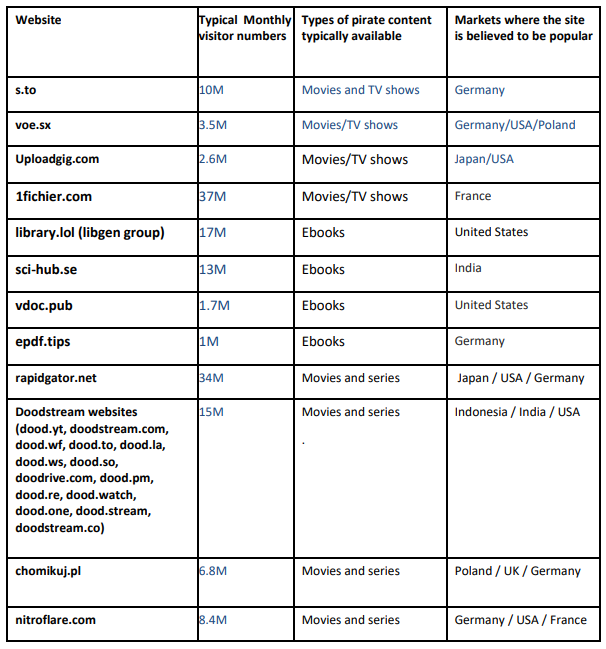-
chevron_right
EU Mulls Expansion of Geo-Blocking ‘Bans’ to Video Streaming Platforms
news.movim.eu / TorrentFreak · Wednesday, 6 December - 12:46 · 4 minutes
 Consumers who want to watch movies or TV-shows online are limited to the content that they are permitted to see in their home country.
Consumers who want to watch movies or TV-shows online are limited to the content that they are permitted to see in their home country.
This means that the Netflix or Amazon library in one country can be entirely different to those made available in a neighboring nation.
This is a direct result of the territorial licensing deals the entertainment industry is built on. However, now that people are more connected online, these restrictions are an increasing source of frustration. That frustration can, in turn, fuel piracy.
Many PlayStation users were reminded of these licensing complications a few days ago when they were informed that several purchased movie titles will disappear from their libraries. While that’s a unique situation, it’s quite common to see movie and TV show titles removed from subscription platforms.
No law can force these platforms to offer content indefinitely but according to European lawmakers, it is possible to level the playing field and remove unnecessary barriers.
EU’s Geo-Blocking Restrictions
To counter consumer-unfriendly limitations, the European Commission previously banned certain types of geo-blocking as part of the Digital Single Market reforms. This legislation has been in place for a few years and works well, although video content is currently exempt .
There are ongoing discussions in the EU that could upend this. Current plans don’t call for an end to regional licenses or the adoption of a general EU-wide license, but they do stress that catalog and heritage content should be available in “unsold” territories. Specifically, citizens shouldn’t be discriminated against based on where they live.
The European Parliament’s Committee on Internal Market and Consumer Protection (IMCO) recently put out a report (pdf) in which it sets out several suggestions and recommendations. They include a lifting of the geo-blocking ban exemption for the audiovisual sector.
Expanding to Video Platforms?
The report recommends the EU Commission to launch a comprehensive review of the current geo-blocking regulation and have that completed by 2025. It also carries several suggestions for improvement and expansion of the current rules.
“The data presented in the report suggest that the effects of such an [geo-blocking] extension would vary by type of content, depending on the level of consumer demand and on the availability of content across the EU,” the report’s summary reads.
“As regards an extension to audio-visual content, it highlights potential benefits for consumers, notably in the availability of a wider choice of content across borders. The report also identifies the potential impact that such an extension of the scope would have on the overall dynamics of the audio-visual sector, but concludes that it needs to be further assessed.”
The proposals don’t include the abolishment of all territorial licenses in the EU, and they’re mindful of the potential impact on the industry. Nevertheless, some industry insiders are spooked; the Creativity Works! coalition ( CW ), for example, which counts the MPA, ACT, and the Premier League among its members.
‘Geo-Blocking Restrictions Threaten Video Industry’
According to CW, geo-blocking technology is crucial to the creative and cultural industries in Europe.
“Geo-blocking is one of the foundations for Europe’s creative and cultural sectors, providing Europeans with the means to create, produce, showcase, publish, distribute and finance diverse, high-quality and affordable content,” they write .

Banning geo-blocking altogether would be a disaster that puts millions of jobs and hundreds of billions of euros in revenue at risk, CW warns. At the same time, it may result in more expensive subscriptions for many consumers.
“Ending geo-blocking’s exclusive territorial licensing would threaten 10,000 European cinemas, access to over 8,500 European VOD films and up to half of European film budgets,” CW writes.
“What’s more, over 100 million European fans could pay more to view the same sports coverage, while major digital streaming platforms might be forced to introduce sharp hikes for consumers in many European countries.”
Upsetting The Status Quo
Understandably, the movie industry is concerned about legislation that upsets the status quo. However, the IMCO report doesn’t recommend a wholesale ban on territorial licenses but aims to ensure that content is available in regions where it currently isn’t.
At this stage, nothing is set in stone, so proposals could change. However, the present recommendations appear to seek a balance between the interests of the entertainment industry and the public at large.
Digital rights organization Communia supports the proposals, which it in part helped to shape. The group is concerned about CW’s suggestion that restricting access to content is the “foundation for Europe’s creative and cultural sectors” and hopes that lawmakers will carefully weigh all arguments.
Communia says the report makes it clear that the entertainment industries can do more to serve customers across all regions. This is a conclusion rightsholders are not happy with, the group notes .
“[O]ne of the core insights of the IMCO report, that as a consequence, the adaptation of existing business models to the changing environment is needed both for consumers and businesses is once again at the risk of being ignored.
“Rightholders are seeking to get this conclusion removed from the report because the stakeholders on the supply side of the AV sector have again decided that rather than adapting to and working with consumer expectations, they can rely on their considerable lobby power to preserve the status quo that they have gotten comfortable with.”
Communia believes, however, that there are plenty of options to improve the situation for the general public, without destroying the entertainment industries.
“If done well, ending geo-blocking would provide all Europeans with more legal access to a more diverse offering of AV content and a thriving cultural sector that can finally stop claiming that denying people access to culture is in anyone’s interest,” the group concludes.
From: TF , for the latest news on copyright battles, piracy and more.
 Signed into law a quarter century ago, the Digital Millenium Copyright Act (DMCA) aimed to equip copyright holders with new tools to protect their works online.
Signed into law a quarter century ago, the Digital Millenium Copyright Act (DMCA) aimed to equip copyright holders with new tools to protect their works online.



 With more than a billion impressions per month and over 30,000 active advertisers,
With more than a billion impressions per month and over 30,000 active advertisers,

 Over the years we have seen dozens of anti-piracy campaigns. Initially, many of these tried to appeal to people’s morals.
Over the years we have seen dozens of anti-piracy campaigns. Initially, many of these tried to appeal to people’s morals.
 The Entertainment Software Association (
The Entertainment Software Association (




 Over the past year, new artificial intelligence tools and services have been surfacing everywhere.
Over the past year, new artificial intelligence tools and services have been surfacing everywhere.



